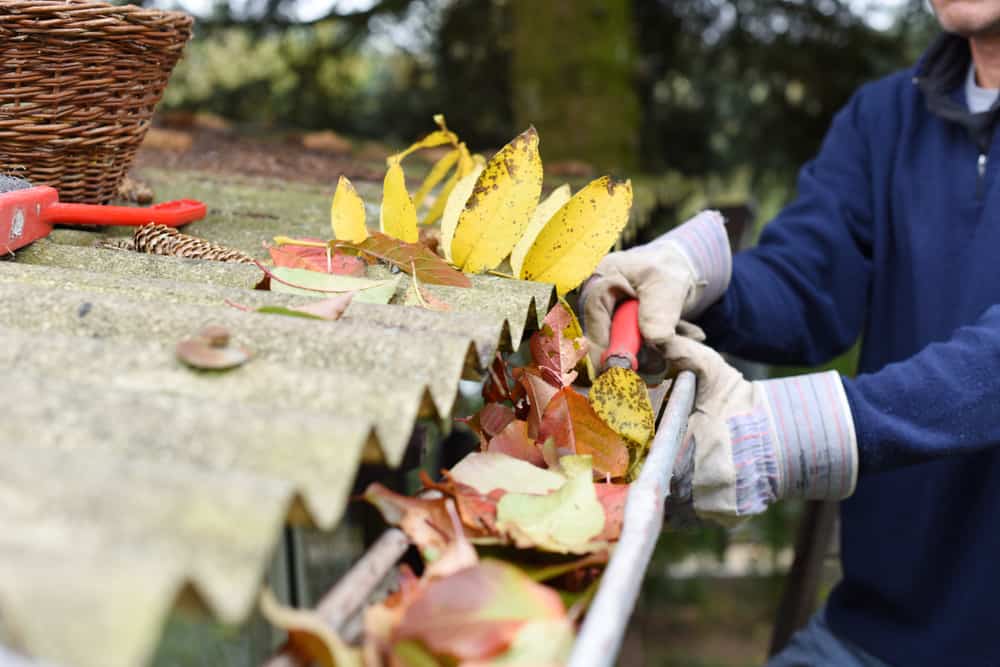Blog
How to Keep Your Home Dry in the (Somewhat) Wet State of Washington

It rains all the time in the Evergreen State, right? If not, how did Washington get so green? Don’t worry about it. As long as you have adequate homeowners insurance and take a few protective measures to keep your house dry, both your family and your home will do fine during the rainy season here.
But First, Is Washington State Really All That Wet?
You might be pleasantly surprised. Depending on where you live in the state, you could have as little as 7 or 8 inches of annual precipitation or as much as 200 inches. For most residents, the truth is somewhere in the middle, though generally on the drier end of the gauge.
For instance, if you’re moving to Seattle, you might picture the Emerald City as being under constant rain activity. The truth is that it’s ranked just 44th of all major U.S. cities by annual rainfall. How about the state as a whole? It doesn’t make the top 10. In fact, Washington was ranked just the 20th wettest in 2021 in annual precipitation, which includes snow.
The bottom line is two-fold: You might live in a pretty wet part of the state … and any amount of rainfall anywhere in Washington can cause damage if you don’t act to keep your home dry. If you protect your home you can lower your risks, which can save you money on your home policy in the PNW. So here are a few rain-proofing actions you might consider.
Keep an Eye on That Roof
How old is your roof? What kind do you have? Knowing the answer to both questions can keep you dry in Washington.
The most common type of roof in new and existing construction in the U.S. is the standard asphalt shingle roof. It will last you, on average, anywhere from 15 to 30 years before it starts needing repairs or replacement. Other, less common, types of roofs tend to cost more but last longer.
For instance, you’ll pay a lot more for a slate roof, but it can last for literally a century, maybe even longer. At least, it will if it escapes damage from a major windstorm (which is a possibility due to its brittle nature).
Clay tile roofs are, again, more expensive than the asphalt shingle variety, but they can last 50 years or longer. They’re also known for their striking appearance and the ability to keep a home cool in the summer. Of course, Washington summers are mild, so that’s not a major selling point here.
Other roofing options can include metal, wooden shingles, and even concrete tile. Each has advantages and drawbacks. The secret is to know your type of roofing and its age. As it begins to age out, make frequent trips to attics and other spots where that first leakage might occur. Do you see water stains or smell moisture or mildew? Take early action before the problem worsens.
After heavy storms, look for signs of damage, such as roofing materials on the ground. If you know what you’re doing, you might even consider a trip or two up a ladder for an inspection as your roof starts to become a senior citizen.

Clean Your Gutters or Install a Gutter Guard
Rainwater and melting snow in Washington have to go somewhere as gravity pulls them off your roof. That’s what gutters and downspouts are for — to direct that flow down into storm drains and away from your home.
If your gutter system is blocked somewhere with fallen leaves or other wind-driven debris, the water will collect where you don’t want it to. That could be in your basement or between your walls.
Either make gutter-cleaning a regular habit after the autumn leaves fall, or install a gutter guard system to resist future blockages.
Seal Up Those Windows and Doors
A caulking gun can work small wonders. If you see or smell moisture accumulating where your windows or doors should seal the rainwater out, it’s time to take action.
How about the condition of your windows? When you can do little or nothing to keep them from admitting drafty air in the winter, it might be time to replace them. After all, if outdoor air can get in so readily, moisture is likely to follow. As an added bonus, you might find that you can fairly quickly pay off your new investment in windows with lower energy costs.
Get a Dehumidifier If You Need One
If moisture is already accumulating in your home, one rather low-tech interim solution is to buy and run a dehumidifier. It can reduce your risk of mold and mildew while also helping reduce high energy bills.
Keep in mind, you should still get to the root cause of the moisture problem, but a dehumidifier can provide help and comfort in the meantime.
Consult a Trusted Home Insurance Agent
Your local homeowners insurance agent knows about weather patterns that can affect your home, wherever you live in the state of Washington. These agents have seen the worst and can help you customize a homeowners policy that meets the specific weather (and other) threats and conditions you’ll likely face.
An independent homeowners insurance agent might be able to provide even more help, especially when it comes to cost. That’s because independent agents don’t work for just one insurance carrier. They represent multiple carriers, which means they can shop for and present you with more options for cost and terms.
Your independent agent will also help you determine coverage limits, deductibles, and other factors that can affect premium costs to get you the terms that will protect you and your family. As part of that mission, your agent will offer guidance on protecting your home and family and help you keep your place dry wherever you live in the Evergreen State.
Get Affordable Home Insurance in Washington Today
Chat with an independent insurance agent at Vern Fonk Insurance. Just call (800) 455-8276. You can also meet face-to-face with an agent at a Washington office location near you or get a quick quote online.


